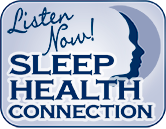Do you think you have a sleeping disorder?
| Disclaimer: This sleep test is not intended as medical advice. If you think you may have a sleep disorder, contact Dr. Weyneth (1-800-SNORING) or your primary care physician, regardless of the results of this test . | |||||||||||||||||||||||||||||||||||||||||||||||||||||||||||||||||||||||||||||||||||||||||||||||||||
If you have answered “yes” to two or more of these questions, you might be at risk for a sleep disorder. Discuss your symptoms and concerns with your doctor. For more general information on sleep disorders see The National Sleep Foundation |
|||||||||||||||||||||||||||||||||||||||||||||||||||||||||||||||||||||||||||||||||||||||||||||||||||
|
|
|||||||||||||||||||||||||||||||||||||||||||||||||||||||||||||||||||||||||||||||||||||||||||||||||||
How sleepy are you? |
|||||||||||||||||||||||||||||||||||||||||||||||||||||||||||||||||||||||||||||||||||||||||||||||||||
| The Epworth Sleepiness Scale is a questionnaire that is often used world wide to assess your level of sleepiness. This scale should not be used to make your diagnosis. It is intended to help you identify your own level of daytime sleepiness. | |||||||||||||||||||||||||||||||||||||||||||||||||||||||||||||||||||||||||||||||||||||||||||||||||||
|
|||||||||||||||||||||||||||||||||||||||||||||||||||||||||||||||||||||||||||||||||||||||||||||||||||
|
|
|||||||||||||||||||||||||||||||||||||||||||||||||||||||||||||||||||||||||||||||||||||||||||||||||||
|
|||||||||||||||||||||||||||||||||||||||||||||||||||||||||||||||||||||||||||||||||||||||||||||||||||
| If you’ve scored: 6 -10 or higher, you may have a problem with daytime sleepiness. However, a score below this does not necessarily mean you don’t have a problem. Please discuss your symptoms with your physician. | |||||||||||||||||||||||||||||||||||||||||||||||||||||||||||||||||||||||||||||||||||||||||||||||||||
|
|
|||||||||||||||||||||||||||||||||||||||||||||||||||||||||||||||||||||||||||||||||||||||||||||||||||
What’s your Snore Score? |
|||||||||||||||||||||||||||||||||||||||||||||||||||||||||||||||||||||||||||||||||||||||||||||||||||
| The following information was taken from American Sleep Apnea Association brochure called Tired of Snoring? It’s NO Joke. Please contact the above source if you’d like a brochure regarding facts on sleep apnea. | |||||||||||||||||||||||||||||||||||||||||||||||||||||||||||||||||||||||||||||||||||||||||||||||||||
| Your answers to this sleep quiz will help you decide whether you may suffer from sleep apnea: | |||||||||||||||||||||||||||||||||||||||||||||||||||||||||||||||||||||||||||||||||||||||||||||||||||
|
|||||||||||||||||||||||||||||||||||||||||||||||||||||||||||||||||||||||||||||||||||||||||||||||||||
| If you or someone close to you answers “yes” to any of the above questions, you should discuss your symptoms with your sleep physician or sleep specialist. Or ask the American Sleep Apnea Association for more information on the diagnosis and treatment of sleep apnea. Different treatments are available. | |||||||||||||||||||||||||||||||||||||||||||||||||||||||||||||||||||||||||||||||||||||||||||||||||||
|
|
|||||||||||||||||||||||||||||||||||||||||||||||||||||||||||||||||||||||||||||||||||||||||||||||||||
Sleep Observer Test |
|||||||||||||||||||||||||||||||||||||||||||||||||||||||||||||||||||||||||||||||||||||||||||||||||||
| The following questions relate to the behavior that you have observed in the patient is while he/she is asleep. Use the following scale to choose the most appropriate number for each situation. | |||||||||||||||||||||||||||||||||||||||||||||||||||||||||||||||||||||||||||||||||||||||||||||||||||
| 0=Never 1=Infrequently (1 night per week) 2=Frequently (2-3 nights per week) 3=Most of the time (4 or more nights per week) |
|||||||||||||||||||||||||||||||||||||||||||||||||||||||||||||||||||||||||||||||||||||||||||||||||||
|
|||||||||||||||||||||||||||||||||||||||||||||||||||||||||||||||||||||||||||||||||||||||||||||||||||
| A score of 5 or greater indicates symptoms which are affecting the health, safety, or quality of life of the observed person. | |||||||||||||||||||||||||||||||||||||||||||||||||||||||||||||||||||||||||||||||||||||||||||||||||||






(630) 369-5508